Ready to learn more?
Get all the details straight to your inbox!
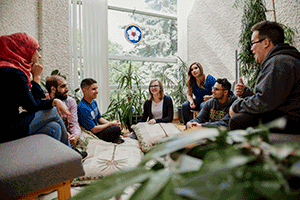
Luther College appeals to students who want to study in a safe, nurturing, and inclusive environment. We welcome students of all faiths, ethnicities, backgrounds, religions, genders, and sexual orientations.

Wondering where to live? Our student residence, The Student Village at Luther College, is considered a great choice for first-year student accommodation. Individual private rooms mean you can stick to your own schedule and you never have to deal with roommate hassles.

Living in The Student Village at Luther College, our student residence, comes with a choice of healthy, nutritious meal plans. That means no grocery shopping, no meals to cook, and no dirty dishes to worry about. You can focus on your studies and wellness!

Luther College students are eligible for nearly $100,000 in academic awards – in addition to scholarships and bursaries awarded by the U of R.
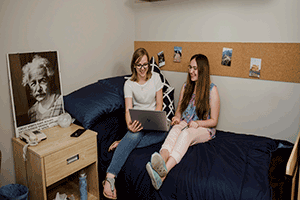
Our student residence, The Student Village at Luther College, welcomes residents from ALL post-secondary institutions in Regina. Rooms come with a meal plan, free laundry, free wi-fi, and a great sense of community.
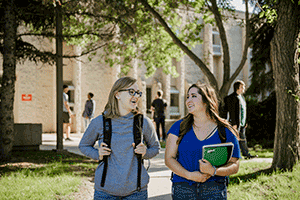
Luther College is a great choice for high school to university transition. Enjoy all the benefits of a larger campus, without feeling lost in the crowd. Our community is full of caring mentors and peers to ensure a positive student experience.
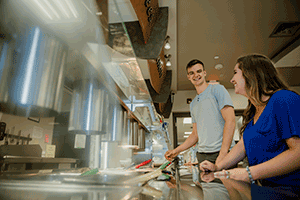
Eating better means studying better. The Luther Cafeteria offers fresh, healthy, nutritious meals seven days a week with a self-serve “all-you-care-to-eat” concept students prefer.

Free enrolment counselling support and invaluable one-on-one academic advising are available for all programs at Luther College.
Get all the details straight to your inbox!
.jpg)
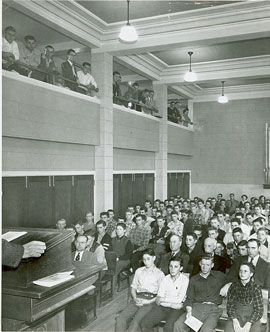
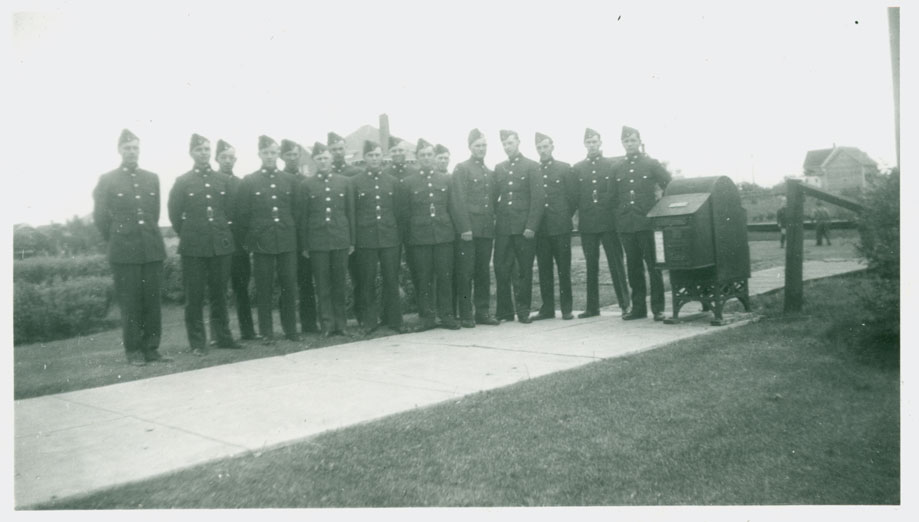
1939-45 – The first Regina boy killed in the Second World War, Peter Lay, is a Luther alumnus. He dies in a flight training accident.
In a strong display of patriotism, the boys’ dorm is run according to military procedures. Luther teachers organize Air Cadet Squadron No. 32 for high school boys, while senior and university students enroll in OTC, which is in cooperation with Regina College. Girls canvass door-to-door to raise money for the war effort, and learn supporting roles, such as signaling. Every morning a colour guard marches from the front door out to Royal Street to raise the flag and there is a sunset ceremony every evening as the flag is taken down.
During the war, over 300 Luther students and alumni are in the military service; sixteen do not return home, including James C. Black (1937), W. Martin Chambers (1936), Maurice G. Church (1936), Hubert U. Ford (1940), Dennis B. Froud (1937), Harry O. Fysh (1939), J. Edwin Gardiner (1934), Cecil D. Heming (1939), Peter C.E. Lay (1933), William McCausland (1931), Archibald S. McTavish (1934), Gordon A. Pearce (1938), Richard A. Scott (1937), R. Burns Scott (1940), Ronald A. Seaker (1936) and Kenneth Spring (1936).
Luther alumni, who were fluent in German, are often assigned as guards in the German POW camps established around Saskatchewan.
1945-1950 – Enrollment continues to increase during the war years and grows rapidly to 226 when the war is over.
Rex Schneider is the founding President of Canadian Lutheran World Relief, established to help postwar Europe including assistance to refugees coming to North America. A number of students from Germany find their way to Luther College.
Rex Schneider takes initiative in getting the various Lutheran churches of western Canada, representing different ethnic and theological traditions, to agree on supporting the seminary in Saskatoon, Saskatchewan. His efforts result in Luther grads no longer needing to go to the United States to attend the seminary.